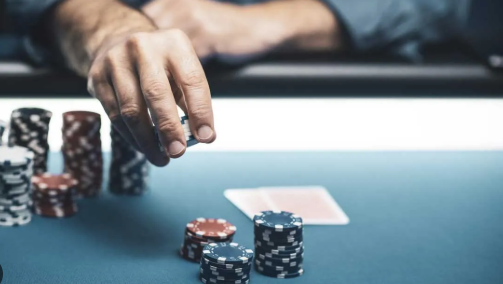More and more professional athletes are showing interest in poker, as it allows them not only to compete, but also to apply strategic thinking in an unfamiliar field. Athletes, accustomed to high loads, strategic planning, and quick decision-making, find in poker intellectual and psychological challenges similar to those they experience in the sports arena. The purpose of this article is to explore why poker is becoming popular among athletes and how their strategic thinking and skills help them succeed in this game.
Athletes’ strategic thinking as a factor for success in poker.

Strategic thinking is the ability to plan and predict your opponent’s moves, taking into account various variables. It plays a key role in both sports and poker. Strategic thinking in sports allows athletes to analyze their opponents, anticipate their moves, and change tactics during the game. These same skills are necessary in poker, where players need to quickly assess their opponents’ actions, anticipate their intentions, and adjust their play.
The skills that athletes acquire throughout their careers are easily applicable to poker. For example, in team sports such as soccer or basketball, players learn to act based on an analysis of their opponents’ play and to quickly adapt to changing conditions on the field. In poker, these skills become important when assessing opponents’ behavior and managing one’s bets.
An example of athletes’ successful transition to poker is the story of many professionals who became successful poker players after completing their athletic careers. Athletes such as former footballers or tennis players, especially chess players, often achieve success in poker tournaments thanks to their discipline, ability to manage their emotions, and ability to make strategic decisions under pressure.
Thus, the strategic thinking developed in sports becomes a powerful tool for success in poker, allowing athletes to adapt to a new environment and use their skills in a different form of competition.
Poker as a form of intellectual and psychological challenge
Poker combines an element of luck with intellectual play, in which analytical skills and the ability to control emotions are important. It develops and maintains the cognitive skills that are important for successful play: calculating probabilities, analyzing risks, and predicting opponents’ moves. For athletes accustomed to constant training and psychological challenges in the sporting arena, poker becomes a natural continuation of their pursuit of intellectual and psychological challenges.
A comparison of the psychology of poker and sports shows that both activities require a high level of concentration and self-control. In sports, athletes constantly face physical and psychological challenges, whether it’s a game of endurance or a tense final battle. In poker, players must remain calm, control their emotions, and carefully analyze the situation at the table to avoid making mistakes under stress.
Thus, poker provides athletes with the opportunity to experience intellectual and psychological stress similar to the challenges they faced in sports competitions, which makes it attractive to them.
Applying sports skills to poker strategy
The skills that athletes acquire throughout their sporting careers are directly transferable to poker and help them achieve success. For example, strategic planning and analysis of opponents, which are so important in team sports such as soccer or basketball, are also key skills in poker. Athletes know how to evaluate their opponents’ actions and adjust their strategies depending on how events unfold.
One of the most important aspects of poker is risk management. Athletes who are used to making decisions under pressure and uncertainty successfully transfer these skills to poker. In sports, whether it’s a boxing match or a tennis match, players constantly weigh risks and make decisions based on a variety of factors. In poker, these skills help you assess your chances of winning, manage your bankroll, and choose the right moments for aggressive play or, conversely, for restraint.
In addition, regular training and preparation in sports also find application in poker. The ability to approach the learning process with discipline and constantly improve their skills helps athletes adapt to new challenges in poker.
They study strategies, analyze their mistakes, and improve their game over long sessions, as if they were preparing for an important sports tournament. Thus, athletic skills such as strategic thinking, risk management, and discipline help athletes successfully adapt to poker and achieve success in the game.
The psychology of risk management and decision making
Risk is present in both sports and poker. Athletes know that any match or game can end in either victory or defeat. In poker, as in sports, you need to be able to weigh risks and make decisions under conditions of uncertainty. The ability to remain calm and calculating in tense moments is a quality that makes athletes successful in poker.
Decision-making under stress and pressure is another important component where athletes have an advantage. In sports competitions, players often find themselves in situations where they have to make quick decisions without having all the information. In poker, a similar situation arises on every hand: the player must assess the odds, analyze the behavior of their opponents, and choose the optimal strategy, even if the outcome of the game is unknown.
An example of the successful use of these skills is the participation of athletes in major poker tournaments, where they demonstrate their ability to think analytically and remain calm in difficult situations. Athletes, accustomed to high stakes and high risk, transfer their skills to poker, which allows them to play confidently at high levels.
Thus, understanding risk and decision-making are fundamental skills that allow athletes to successfully adapt to poker, where strategic thinking and stress resistance are important.